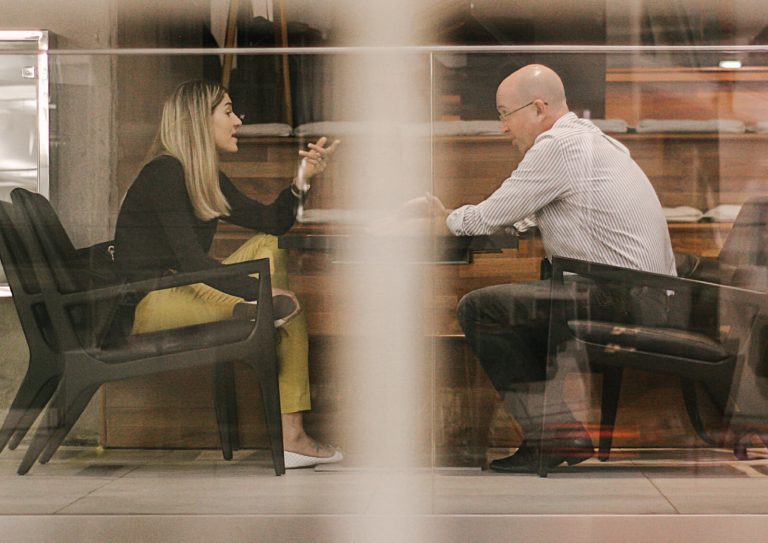
Whether you’re someone that loves the WFH life, or you prefer being in an office, there are things you can do to stay productive and look after your wellbeing.
In 2020, we naively thought we were going to be working from home for just a few weeks or months, but this way of working is here to stay for many of us. Lots of us couldn’t be happier about it, while others struggle with the social isolation, constant screen time and lack of routine.
Whether you’re a parent having to balance work and home life, or have concerns about being home with your siblings, roommate, or parents for so many hours of the day, there’s no need to panic. Similarly, if you live alone and are worried about your wellbeing while spending so much time on your own, there are ways to avoid getting cabin fever.
From setting up a decent workspace to encouraging frequent communication with your team, here are our five work from home tips for staying productive and well.
1. Create a schedule that works for you
First off, setting up a schedule that replicates a normal workday can be helpful. Try to wake up and get dressed as if it’s a normal day, take your lunch or coffee break, and break the day up into achievable chunks.
You could also try the ‘Pomodoro method’ which uses a timer to break work into intervals – 25 minutes on and then a short break. If you like focusing for longer periods, you can adjust the time of the intervals. Plan out what you want to achieve in this dedicated ‘focus time’, pop away your phone if you can, and give your full attention to the task at hand.
2. Be strict with your breaks
Often, with a busy work day filled with meetings, deadlines, and deliverables, it can be easy to shrug off breaks. We know that on occasion, our work requires us to be flexible around when we take breaks, in order to tick off our list of work priorities. This makes it easy to slip into a habit of skipping breaks altogether to get more work done.
But when we do this, the outcomes aren’t always positive, and can cause burnout and increased stress. It’s important to prioritise time away from your computer, desk and emails. Set yourself a timer and ensure you’re setting aside adequate time to rest and recuperate before heading back into work.
Taking breaks throughout the day will actually improve your productivity and wellbeing and help you stay fresh and alert. This could be as simple as sitting outside in your backyard for ten minutes to get some sun or taking your dog for a walk after a long meeting. Even taking care of quick jobs around the house, like doing the washing or putting on the dishwasher, can be a good way to break up the day.
You could also do some online professional development that would normally be on your long wish list – with less commuting time, you could invest in yourself.
3. Keep up communication with your team
Having regular chats with your colleagues is just as important when you’re working remotely as when you’re in an office.
Being home a lot of the time can be lonely for some people, so having frequent communication will keep morale high. It’s also a good way to make sure you stay focused, energised and productive. Most people will be trying to manage many of the same challenges as you are, so if you feel comfortable, be open and honest with them. If you have kids and are jumping into a video conference, it’s okay to give them a heads up that a child may come into the room or be making some noise in the background. Most people are completely understanding of this by now.
If you have a colleague, family member or friend who lives alone while working from home, let them know you’re only a call away. It’s also helpful for you to have conversations with people outside your house.
4. Set up a workspace and establish work boundaries
As tempting as it is to stay in your pyjamas and send emails from the couch, it won’t be beneficial in the long run. It’s important to treat working at home like a real job. If you already have a desk or office that’s great, but if you don’t, setting up a space that is specifically for you is important. This could even be a corner of a room with a desk if you don’t have much space available.
You can also set boundaries for the people you live with. If you have children, let them know if parts of the day are ‘do not disturb’ time. You can have a sign on your door or a little note on the table with a ‘thumbs up’ or ‘thumbs down.’ If you know that parental responsibilities could affect your work time, speak openly with your manager and team about your plans to work flexibly. You might need to have more breaks, or work within adjusted hours. If you often work overtime, set boundaries on your work hours.
5. Stay active
Staying active while being at home can be tricky. You could go for a walk around the block before you start your work day or go for a run in your lunch break.
If you can’t get out and about, there are so many great videos on YouTube or Instagram that can help keep you active while in the house. From yoga and Pilates classes to high intensity interval training, there’s something for people of all fitness levels.
Working from home can take some adjustments, but by being intentional about your schedule and boundaries, and taking breaks and staying active, you can stay both productive and well.
If you need support with workplace-related issues, such as stress, relationship challenges with colleagues, or anything else, Relationships Australia NSW can help.
Related Services & Workshops

Accidental Counsellor
Accidental Counsellor is a workshop to assist people who aren’t trained counsellors, but often find themselves in a counselling role “by accident”. You’ll learn how to support clients, friends, family, colleagues, and strangers in distress or experiencing a crisis.

Counselling.Individuals.Older People.LGBTQIA+
Individual Counselling
Life can be full of ups and downs. While we may be able to overcome most challenges by ourselves, sometimes we need some extra support. Individual Counselling offers a supportive environment to identify and manage problems and concerns.






